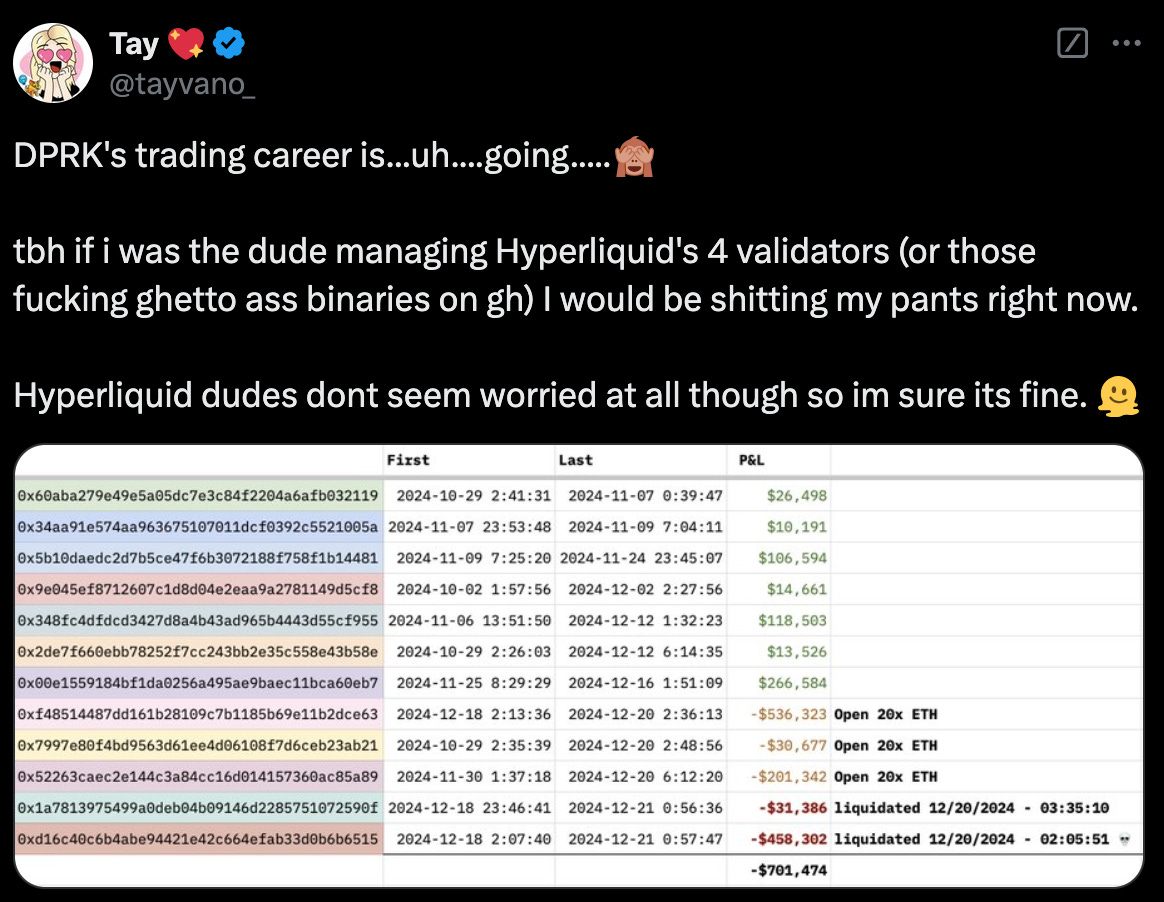All I want for Xmas is … more decentralization.
The mission of Hydration Protocol is to make DeFi simple, efficient, and unstoppable. If DeFi were to ever stand a chance in the battle against TradFi, these three would be the decisive factors. Onboarding normies demands flawless UX with UIs that abstract all complexities. Great UX also suggests capital-efficient execution of financial transactions. Finally, the system needs to be resilient in order to protect itself from external interference - they will not let you have your cake and eat it.
The last factor - resilience, is often overlooked in the DeFi space. Projects assume to be resilient and decentralized just by the mere fact that they are built on a blockchain. In reality, their functioning relies upon a myriad of multisigs that control everything in between block production, treasury funds, and transaction pausing. Things are okay until they are not, and the operations are interfered with by team members, institutions, Lazarus, or some other assumption of authority.
Built on Polkadot, Hydration already receives a great deal of resilience out-of-the-box. Democracy is an important part of this. Ever since the mainnet was launched and the founding team gave up control over the chain, all decisions affecting the Protocol have been made by HDX holders using referenda - and so far we have 203 of them!
With the launch of OpenGov today, Hydration Protocol undergoes an upgrade in its Democracy processes. OpenGov allows us to have more referenda running in parallel, have different tracks depending on the importance and impact of a referendum, and to sunset the Hydration Council in favor of more decentralization. The old governance mechanism will continue running in parallel for a few months, after which it will be deprecated.
Introducing OpenGov
Some of you may already be familiar with OpenGov from Polkadot. As Hydration relies on the same pallets, it will work in a very similar manner (with a few tweaks).
Anyone can submit an on-chain referendum to one of the available tracks (initially there are 9 tracks). The choice of the track depends on how far-reaching the consequences of the referendum are, with higher tracks posing stricter requirements. For example, a referendum requesting a small tip in HDX will be easier to pass than a Root referendum for upgrading the chain. There are tracks for cancelling and killing (cancel + slash deposit) referenda.
Initially, liquidity operations concerning the management of the Hydration Treasury will be performed using the Root track. Within a few weeks, we are planning to introduce the ability for the Treasurer track to manage all Treasury positions (including LP, Money Market etc). Also, a new Economic Parameters track will be proposed with the powers to make tweaks e.g. to the AAVE risk parameters.
After a referendum has been created, it will only enter the decision phase once the decision deposit has been placed. This is a deposit that can be provided by anyone, and which is returned after the referendum has finished, regardless of the outcome (unless there has been a malicious intent).
Depending on the track, a referendum will run for up to 7 days. After the decision period has elapsed, any referendum with more than 50% approval will be enacted. A referendum can also be approved earlier, provided that it receives sufficient support. Learn more about approval and support in our docs.
Referenda that strictly require fast adoption can be whitelisted by the Technical Committee. Whitelisted referenda have a shorter decision period and require less support to be approved.
Finally, it is important to mention that there are no changes in regard to staking. Stakers can continue voting in OpenGov to boost their HDX rewards. In the upcoming months we will add the ability to vote on referenda directly from the UI without leaving the Hydration app.
This was just a high-level overview of the functioning of Hydration OpenGov. To learn more, we encourage you to visit our docs:
https://docs.hydration.net/community/opengov
https://docs.hydration.net/guides/opengov
Less Committees, More Decentralization
The launch of OpenGov also brings changes to the two existing collectives - the Council and the Technical Committee.
All existing tasks of the Council are fully transferred to OpenGov. The Council will be dismissed once the transition period to OpenGov has been completed, and Gov v1 has formally been removed. On behalf of the Hydration Protocol, a big thank you to all Council members for their service 🫡
The Technical Committee will continue existing under OpenGov, however its powers have been limited to emergency interventions only: They can whitelist referenda that require faster enactment, pause specific transactions, set the tradability of particular assets etc.
Happy (open) governing!



